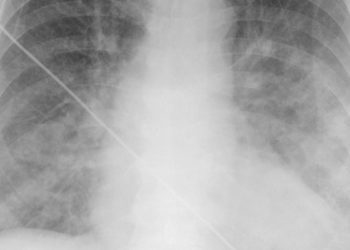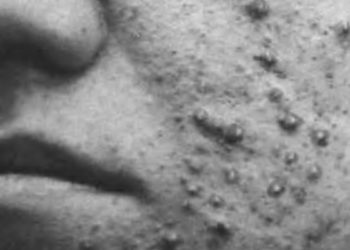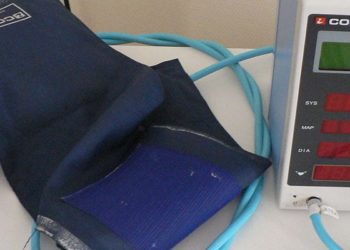The RALES trial: Spironolactone decreases all-cause mortality in heart failure patients [Classics Series]
Image: PD
1. Adding 25 mg of spironolactone to standard therapy reduces all-cause mortality in heart failure patients with an ejection fraction <35%
Original Date of Publication: September 2, 1999
Study Rundown: This landmark study supported the use of spironolactone, in addition to standard medical therapy, to reduce mortality and hospitalizations in patients with heart failure. Aldosterone antagonism with spironolactone should be considered for patients with a LVEF <35% and NYHA Class III-IV with severe symptomatic heart failure, despite optimization of standard therapy. A subsequent study conducted in 2004 demonstrated an abrupt increase in the prescription of spironolactone after the publication of the RALES trial, and showed a rapid rise in morbidity and mortality associated with hyperkalemia. Thus, calls were made for closer monitoring of patients being prescribed spironolactone.
Primer: Progression of heart failure is thought to be related to physiological neuroendocrine compensation of the body to decreased effective circulating volume – the activation of the sympathetic and renin-angiotensin-aldosterone system, which lead to myocardial remodeling and subsequent progressive reduction in cardiac output. The landmark 1999 RALES trial looked at the latter system, particularly the role of aldosterone blockade in treating heart failure. At the time, there was controversy amongst physicians in using aldosterone-inhibitors, like spironolactone, for the treatment of heart failure as it was assumed that ACE inhibitors, which were well established as standard of care for the condition, already offered effective aldosterone blockade by inhibiting its production. Furthermore, there was feeling of caution in using spironolactone, as it was thought that adding this medication to standard therapy would increase the risk of serious hyperkalemia.
Increasing evidence, however, suggested that ACE-inhibitors did not effectively suppress the production of aldosterone in the long-term. Thus, the RALES trail was launched in order to investigate the role of aldosterone-receptor antagonism in the treatment of advanced heart failure. Specifically, the trial sought to determine whether spironolactone would reduce mortality in patients with advanced heart failure, who were already on standard medical therapy.
Relevant Reading:
- Margo KL, Luttermoser G, Shaughnessy AF. Spironolactone in left-sided heart failure: How does it fit in? American Family Physician 2001;64(8):1393-1399
- Juurlink DN, Mamdani MM, Lee DS, et al. Rates of hyperkalemia after publication of the Randomized Aldactone Evaluation Study. New England Journal of Medicine 2004;351(3):543-551
In-Depth [randomized, controlled study]: The study involved 1,663 patients from 195 centers in 15 countries. Inclusion criteria were as follows: functional NYHA class III-IV, left ventricular ejection fraction <35%, and current treatment with standard therapy (i.e., ACE-inhibitor and loop diuretic). Most patients were also on digoxin. Patients were randomly assigned to either the treatment arm (i.e., standard therapy and 25-50 mg spironolactone once daily) or the placebo arm (i.e., standard therapy and placebo). The trial was scheduled to run for 3 years, but was discontinued early at 24 months due to the clear benefit of spironolactone. The study demonstrated a significant reduction in all-cause mortality, death due to heart failure, sudden death and hospitalizations due to heart failure. Incidence of serious hyperkalemia was rare in both groups.
By Aimee Li, M.D. and Andrew Cheung, M.D.
© 2013 2minutemedicine.com. All rights reserved. No works may be reproduced without written consent from 2minutemedicine.com. Disclaimer: We present factual information directly from peer reviewed medical journals. No post should be construed as medical advice and is not intended as such by the authors or by 2minutemedicine.com. PLEASE SEE A HEALTHCARE PROVIDER IN YOUR AREA IF YOU SEEK MEDICAL ADVICE OF ANY SORT. Content is produced in accordance with fair use copyrights solely and strictly for the purpose of teaching, news and criticism. No benefit, monetary or otherwise, is realized by any participants or the owner of this domain.






